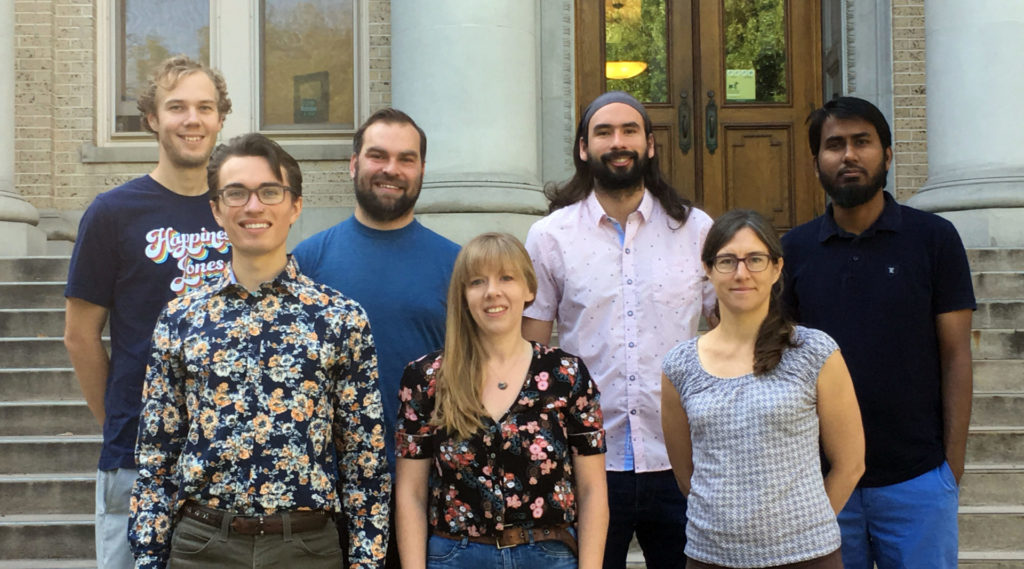
Across the planet, demand for food, energy and water resources is increasing. Yet in academia, these three areas fall under disparate disciplines like engineering, natural resources, policy and economics.
A new program at Colorado State University, which just welcomed its first cohort of eight trainees this fall, is working to break down those traditional barriers by integrating research and training for graduate students in the food-energy-water nexus.
The National Science Foundation awarded the university approximately $3 million over five years to develop a national research traineeship (NRT) program to “train the next generation of scientific leaders to develop the skills necessary to tackle complex societal problems.”
The program is called InTERFEWS (Interdisciplinary Training, Education and Research in Food-Energy-Water Systems in Semi-Arid Regions), and its mission is to prepare a diverse cohort of graduate students with the transdisciplinary and systems-level skills necessary to make meaningful contributions to the complex and changing interactions in food-energy-water systems under water scarcity.
Organizers say the Rocky Mountain Western Region is a perfect backdrop for such an effort, given water scarcity, rapid urban growth and a booming energy industry. CSU’s strengths in energy and water topics, and a culture of collaboration with outside partners, will enable InTERFEWS to succeed.
“CSU has leading expertise in many areas, from energy exploration to water resources planning, to provide an integrated framework in which our students can learn,” said Sybil Sharvelle, associate professor of civil and environmental engineering, and the program’s director. “Our goal is training future leaders at the nexus of food, energy and water, using a systems-based approach that cuts across disciplines, departments and colleges.”

The program will fund 16 graduate students over the next five years, and include another 18 as fellows. Sharvelle and her team launched a new course, Assessing the Food-Energy-Water Nexus, this fall. Another new course, Tools for Analysis of FEWS Issues, will be available spring semester.
Starting next year, the first cohort of trainees will apprentice with industry, government agencies and non-governmental organizations to work on food, energy and water topics. Program activities, including transdisciplinary training and communications workshops, will be open to all CSU students.
Several InTERFEWS research projects are currently underway at CSU, focusing on technological, infrastructural, policy and institutional innovations to foster sustainable food-energy-water systems. Faculty who propose a project through InTERFEWS agree to be potential mentors to trainees who are interested in joining the project. The program is currently accepting transdisciplinary research proposals from faculty and industry partners.
The application period recently opened for InTERFEWS’ second cohort of trainees, which will begin in Fall 2020. CSU Ph.D. students entering the first or second semester of their Ph.D. program are encouraged to apply. Those beyond the third semester of their program are not eligible.
The InTERFEWS leadership team:
- Sybil Sharvelle, InTERFEWS director and associate professor, civil and environmental engineering
- Ken Reardon, professor, chemical and biological engineering
- Mazdak Arabi, professor and Borland Chair of Water Resources, civil and environmental engineering
- Thomas Bradley, associate professor, mechanical engineering
- Meagan Schipanski, assistant professor, soil and crop sciences
- Keith Paustian, professor, soil and crop sciences
- Rich Conant, professor and associate dean, ecosystem science and sustainability
- Stephanie Malin, associate professor, sociology and Colorado School of Public Health
- Christopher Goemans, associate professor, agriculture and resource economics
- Shirley Vincent, external evaluator, Vincent Evaluation Consulting
- Elizabeth Plombon, program coordinator